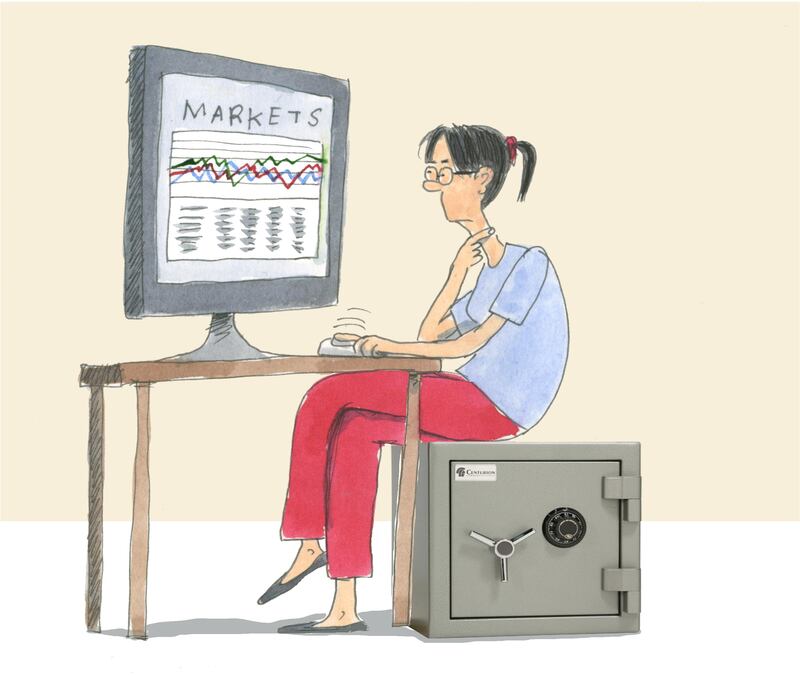Ignorance isn’t bliss; it is expensive and not only when it comes to investing money.
The way to avoid loss boils down to focusing on risk, and how to mitigate it.
It is why the multi millionaire I know was happy, telling me about a great investment he’d made. It promised a 5 per cent return a year. He had sold a business for hundreds of millions, and was satiated with single digit returns cecause his capital was protected. He was earning more than another friend of mine, also of multi-millionaire status, who was really glad with her return – hovering just under that 5 per cent mark – as it was still above what the banks were offering. And yes, her capital was protected too.
You would think they’d want more. But it’s something wealthy people do; they reduce risk. They are very good at following these rules, set out by Warren Buffet:
Rule No. 1: Never lose money. Rule No. 2: Never forget rule No. 1.
The most successful entrepreneurs I know – by success I mean significant self-made wealth - have this in common:
They protect their capital. Think of it as return of capital first, then return on capital thereafter. It’s the reason these people with eight zero’s to their name are satisfied with single digit returns. They study each investment looking closely at what can go wrong. Then they look at how to control, or avoid, permanent loss of capital. They address risk. Understanding it and what can be done to avoid, or at least mitigate it. That’s how they get to keep their eight zeros.
__________
Read more from Nima Abu Wardeh:
Getting caught by an investment scam in the UAE is avoidable
Micro-investing is a nice idea but the fees outweigh the benefits
_________
It can be argued that there is no such thing as capital protected, but these people have a philosophy: they are entrepreneurs and consider what they do to be their high risk exposure.
So they go very low risk with investments and ‘capital guaranteed’ is key. It could be as simple as staying in cash, but distributing it amongst numerous banks, to take advantage of each bank’s savings protection limit – this is the money protected by financial conduct authorities, that would be returned to account holders, should the bank go bust (not unheard of). I know someone who has money with 12 banks for this very reason. Lots of paperwork, but he thinks the protection of capital is worth it.
Not everyone is going to be an entrepreneur, or make millions but we can still learn from their approach. So, assuming you’re on the path to investing your savings, ask yourself this question:
How can I lose money with this investment? Find out all the ways this could happen. This is the main question my wealthy friends focus on.
Then ask yourself: Do you accept the risk?
Now, because there has been a spate of fraudulent investments that UAE residents have been exposed to, I’m including other pointers to reduce risk:
• Ensure the entity you think you’re dealing with exists. Call telephone numbers you’re given. Visit the premises if you can. Look it up, and the names of the people you’re dealing with.
• Make sure you know who you have invested with. What can happen is that you are pointed to a specific company, but end up sending your money to another. Know which entity your contract is with.
• Understand the product you’re buying into. And always ensure you are not locked in.
Mitigating risk includes being able to stay liquid. This is another key thing my wealthy counterparts do. They make sure there’s an exit.
Not being able to sell your investment means you cannot control losses when the going gets bad. Accessing your cash, or being able to sell your investment whenever you want is crucial. It gives you control over if, or when, to cut your losses.
Note that fraudulent companies routinely encourage participants to "roll over" investments, often offering even higher returns on the amount rolled over. If you've been promised access to your cash and have problems when you go this route, this is a red flag - you are probably dealing with a fraudulent entity.
Yes, lower risk means earning less when the going is good. It also means getting to keep your hard-earned capital, or a big chunk of it, when there are problems.
But if offered the chance, many want more than the single digit returns the wealthy entrepreneurs I started with are content to earn. Higher risk investments are taken on, and with them, an increased probability that all will be lost.
To overcome our ‘want more’ bias, how about re-shaping our thinking to: lower-risk means losing less when things go wrong. You’ll end up making more, by risking less.
Here’s a simple mantra: Risk not, want not.
Safeguard your investments. Remember, ignorance is expensive.
Nima Abu Wardeh is a broadcast journalist, columnist and blogger. Share her journey on finding-nima.com






